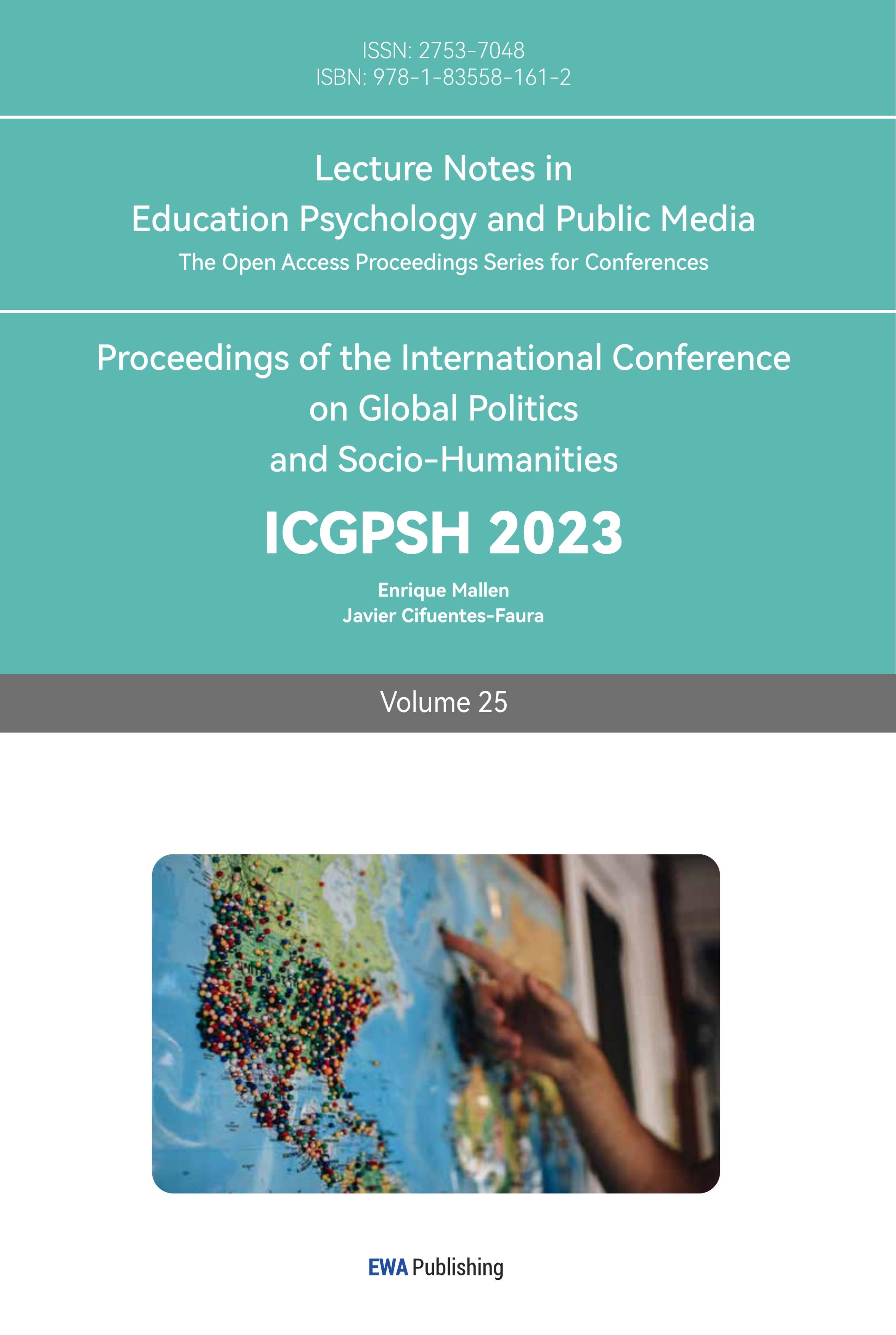References
[1]. Wang Geya, “Domestic Contribution Compensation: Applicable Conflict and Institutional Reflection”, Qiushi Journal, No.5, 2011.
[2]. Xia Yinlan: Human Rights Connotation of Improving the Economic Compensation System for Divorce Housework in the Civil Code, Human Rights Research, No.2, 2020.
[3]. Ian Smith, “European Law, Divorce Rate, Its Causation,” in Legal Analysis of Divorce and Marriage, Law Press, October 2005, 1st edition.
[4]. Becker: On the Family, The Commercial Press, 1st edition, August 2001.
[5]. Adam Smith: The Wealth of Nations, Huaxia Publishing House, First Edition, 2005.
[6]. Lloyd Cohen, “Legal and Economic Analysis of Marriage and Divorce”, Law Press, October 2005, 1st edition.
[7]. Grunow, Ruben, “Family Production -- A Forgotten Industry,” Posner, Economic Analysis of Law, Law Press, 2012, 2nd Ed.
Cite this article
Zhu,H. (2023). Law-Economics Analysis of Financial Compensation for Divorce. Lecture Notes in Education Psychology and Public Media,25,1-6.
Data availability
The datasets used and/or analyzed during the current study will be available from the authors upon reasonable request.
Disclaimer/Publisher's Note
The statements, opinions and data contained in all publications are solely those of the individual author(s) and contributor(s) and not of EWA Publishing and/or the editor(s). EWA Publishing and/or the editor(s) disclaim responsibility for any injury to people or property resulting from any ideas, methods, instructions or products referred to in the content.
About volume
Volume title: Proceedings of the International Conference on Global Politics and Socio-Humanities
© 2024 by the author(s). Licensee EWA Publishing, Oxford, UK. This article is an open access article distributed under the terms and
conditions of the Creative Commons Attribution (CC BY) license. Authors who
publish this series agree to the following terms:
1. Authors retain copyright and grant the series right of first publication with the work simultaneously licensed under a Creative Commons
Attribution License that allows others to share the work with an acknowledgment of the work's authorship and initial publication in this
series.
2. Authors are able to enter into separate, additional contractual arrangements for the non-exclusive distribution of the series's published
version of the work (e.g., post it to an institutional repository or publish it in a book), with an acknowledgment of its initial
publication in this series.
3. Authors are permitted and encouraged to post their work online (e.g., in institutional repositories or on their website) prior to and
during the submission process, as it can lead to productive exchanges, as well as earlier and greater citation of published work (See
Open access policy for details).
References
[1]. Wang Geya, “Domestic Contribution Compensation: Applicable Conflict and Institutional Reflection”, Qiushi Journal, No.5, 2011.
[2]. Xia Yinlan: Human Rights Connotation of Improving the Economic Compensation System for Divorce Housework in the Civil Code, Human Rights Research, No.2, 2020.
[3]. Ian Smith, “European Law, Divorce Rate, Its Causation,” in Legal Analysis of Divorce and Marriage, Law Press, October 2005, 1st edition.
[4]. Becker: On the Family, The Commercial Press, 1st edition, August 2001.
[5]. Adam Smith: The Wealth of Nations, Huaxia Publishing House, First Edition, 2005.
[6]. Lloyd Cohen, “Legal and Economic Analysis of Marriage and Divorce”, Law Press, October 2005, 1st edition.
[7]. Grunow, Ruben, “Family Production -- A Forgotten Industry,” Posner, Economic Analysis of Law, Law Press, 2012, 2nd Ed.









